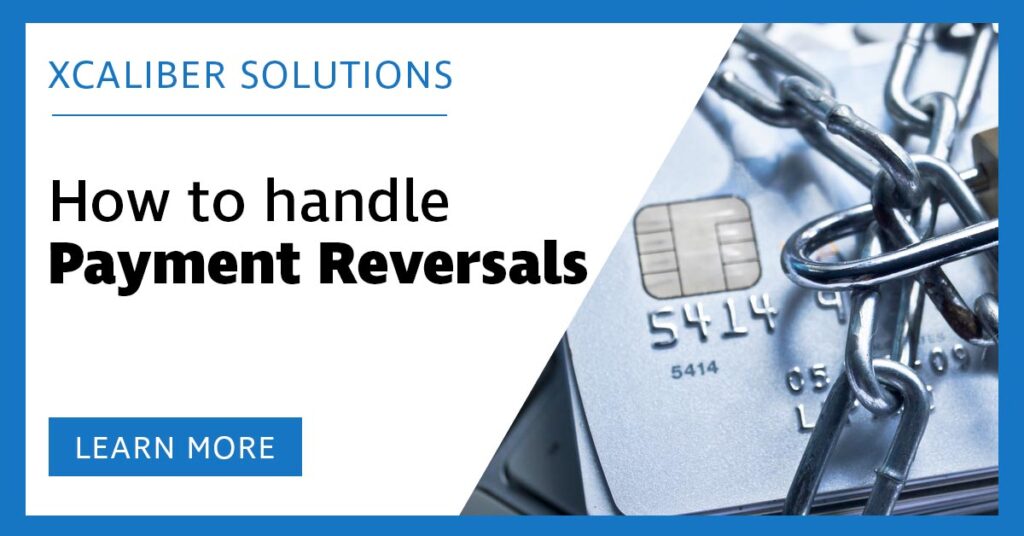The Best Way to Handle Payment Reversals (Not Just Chargebacks)

As a merchant, you’re naturally concerned about the number of chargebacks you incur.
But there are many payment reversals that don’t result in a chargeback that can also be very time-consuming and damaging to the reputation of your business.
So, your goal must always be to minimize the number of transactions that result in a return of funds from you to the customer.
Why Reversals Happen
1. Authorization Reversals
It’s important to understand that funds do not transfer immediately from customer to merchant on the initiation of a transaction.
There’s always a period of time during which the funds are on hold – not available to the customer, but not yet credited to you as the merchant. And during this period you have the opportunity to reverse the transaction and return the funds to the customer.
Clearly, it’s not something you want to do, but it’s sometimes the best option if you have made an innocent error such as –
- entering the wrong transaction amount;
- entering the transaction twice; or
- processing an order for an item that is out of stock or back-ordered.
These kinds of immediate refunds will eliminate many potential chargebacks. And, provided you communicate the situation clearly to the customer, they will also minimize the reputational risk to your brand.
2. Refunds on Customer Request
Less good, but still better than a chargeback, is issuing a refund to a customer after a transaction has completed and the funds have been debited from their account.
Customers may request a refund for a variety of legitimate reasons, including
- goods did not arrive;
- goods arrived damaged or incomplete; or
- goods did not meet expectations.
The Advantages of an Open and Generous Refund and Returns Policy
Granting a refund in such circumstances is costly, because not only do you lose the profit on the sale, but also the interchange fees associated with a completed payment card transaction, and perhaps return shipping fees as well.
Many businesses nevertheless take the view that it is better to operate a generous, “no questions asked”, refund and returns policy, because the associated costs will be outweighed in the long run by the profits derived from retaining loyal customers and building brand reputation.
Such a policy also goes a long way towards avoiding the even more serious – and potentially business-threatening – costs that come with high numbers of chargebacks.
The Problem of Friendly Fraud
It’s true that such policies are open to abuse by bad actors – the practitioners of so-called “friendly fraud”, which is notoriously difficult to identify.
But increasingly sophisticated software and Artificial Intelligence (AI) solutions are now becoming available to help merchants tackle this issue.
Talk to the Experts
And you can get more information on these –as well as how to reduce chargebacks and other payment reversals – by contacting us here
Our expert team will be happy to help.

